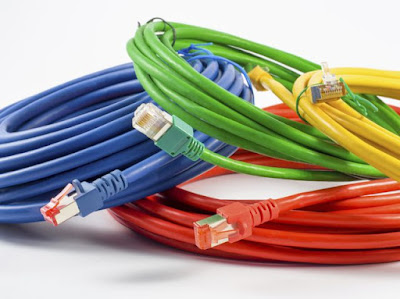Netflix and other video-streaming services use a lot of bandwidth, especially at high-quality settings. HD video streams on Netflix use up to 3 GB an hour, while the highest-quality Ultra HD (4K) streams use up to 7 GB an hour. If you sometimes have awkward stuttering, long load times, or other playback issues, here are some solutions.
Free Up Some Bandwidth
Your Internet connection only provides so much bandwidth, and all of your devices and programs have to share it. Netflix might work fine under normal conditions, but if another device is slurping down data and saturating your Internet connection, it might not be so smooth.
Give your other devices a check and pause any downloads to make the stream work better. If you have roommates or family members sharing your Internet connection, ensure they pause big downloads. If this becomes a regular problem, you may want to upgrade to a faster Internet connection.
To save yourself some trouble, consider getting a router with a traffic-prioritization or quality-of-service feature. This allows you to prioritize your traffic, automatically slowing down less important data when necessary.
Try Watching at Off-Peak Hours
You don't actually have your own cable that goes from the Internet service provider to your front door. Instead, you and your neighbors share a line, and there's a certain amount of bandwidth that's divided among everyone. Most of the day, that doesn't matter a lot -- but it can become an issue when everyone is home after dinner. If all of your neighbors are trying to watch Netflix or use other high-bandwidth applications, this may cause your available bandwidth to drop.
If you encounter this problem at high-usage times -- in evening hours after work -- try watching videos at an off-peak time and see if the streaming works better. This may not actually be a problem for you; it depends how much capacity your Internet service provider is providing to your neighborhood.
Try Another Video Service
You can avoid streaming problems by downloading video rather than streaming it. This might take a little more time up front, but the file is guaranteed to play back smoothly once it's done -- network problems can't interfere. This is particularly ideal if you're struggling with streaming problems during peak hours. Download videos at off-peak times and watch them during those peak usage hours.
Netflix won't allow you to download videos for watching offline. Amazon does offer some offline-viewing features, though, and you don't have to download the entire thing before starting to watch. Often, just getting a few minutes' head start is all you need to get a great playback experience. You might also consider renting or purchasing videos through a program like iTunes.
Go Wired, Not Wireless
Wi-Fi issues could also affect your streaming. Try plugging your streaming device into your router using a good old-fashioned wired Ethernet cable, if possible. This will eliminate any potential wireless interference issues, giving you fast wired Internet speeds.
If you must use Wi-Fi, try optimizing your Wi-Fi connection to reduce interference and boost signal strength. This will minimize the impact Wi-
Check If Your ISP Is Throttling Netflix
Finally, some Internet service providers have occasionally fought with Netflix. They want Netflix to pay them money, and consequently they "throttle" that Netflix traffic to slow it down before it reaches you. This should hopefully not be an issue in the US under new net neutrality guidelines, but it may still be a problem elsewhere -- or if the new net neutrality rules are struck down in court, as the old ones were.
If you encounter this, try using a different video-streaming service. Your ISP may only be throttling Netflix. If you find Netflix is the only service that's slowed down and this is a constant problem for you, you could get a VPN. Access Netflix through the VPN and that VPN traffic should reach you unthrottled by your ISP.
This is only a good idea if your ISP is harshly throttling Netflix. Under normal conditions, a VPN will just slow things down a bit while adding additional cost and complications.














